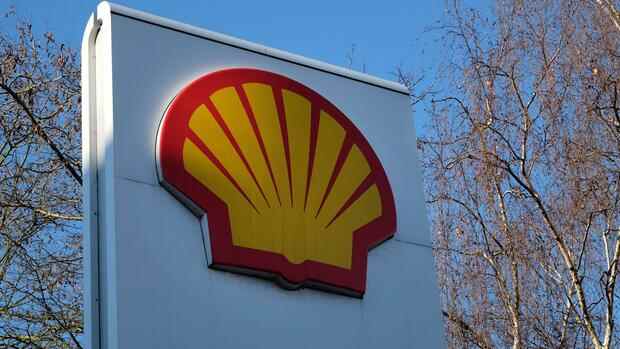The oil company sees a write-down requirement of up to five billion dollars in the first quarter.
(Photo: AP)
Dusseldorf At the beginning of March, Shell, along with other major oil companies, announced its withdrawal from the Russian business. This is now affecting the balance sheet of the British energy company. In the first quarter, write-downs of up to five billion dollars will be required, but this will not affect profits, Shell said on Thursday.
After harsh criticism from the Ukrainian Foreign Minister Dmitro Kuleba that Shell continued to purchase Russian oil after the outbreak of war, the energy company stopped buying raw materials from Russia on the spot market. He also assured that he would no longer conclude any new long-term supply contracts with Russia.
In coordination with the governments involved, Shell is now working on removing Russian oil from its own supply chains “as quickly as possible”. However, this will take several weeks and could lead to bottlenecks in some refineries.
In Germany, this meant that Shell no longer sold products such as diesel or heating oil wholesale. Deliveries are only made to those who have a fixed contract.
Top jobs of the day
Find the best jobs now and
be notified by email.
Because other German refineries have taken similar precautions, domestic prices, especially for diesel products, have risen sharply, contrary to the international price of crude oil.
>> Read here: Why the price of gas stays high while the price of oil falls
36 percent of all German oil imports come from Siberia, the rest from Norway, Great Britain and a dozen other countries. The federal government reacted by lowering the energy tax, and since then the prices at gas stations have fallen below the two euro mark in some cases.
For weeks, however, energy companies such as Shell, Total, BP, but also Uniper, Wintershall and Eon have been under massive pressure due to their business in Russia. Within a very short time, almost all companies have turned around and either partially or completely withdrawn from Russia.
Commission chief Ursula von der Leyen announced on Wednesday that her authority is now also preparing sanctions against Russian oil imports after the hard coal embargo. EU Council President Charles Michel said he believes a ban on Russian oil and gas imports is essential to end the war.
Like Shell, BP has not purchased gas or oil from Russia on the spot market for weeks. Due to long-term supply contracts, however, the complete withdrawal is not possible overnight, explained BP. Total is also no longer buying raw materials from Russia for the time being. Only the German refinery of the French group in Leuna could not do without Russian oil because there was no alternative there.
Meanwhile, oil and gas companies are benefiting from rising energy prices. A year ago, the price for a barrel of North Sea oil type Brent was around 60 US dollars, it is currently just under 100 dollars. The gas price also rose from just under 16 euros per megawatt hour to currently 100 euros.
So while not using Russian raw materials costs Big Oil dearly, they also make significantly more profits at the same time. Shell has already announced an adjustment to its earnings forecast.
More: Putin’s main source of foreign exchange – These are the pitfalls of an oil embargo

